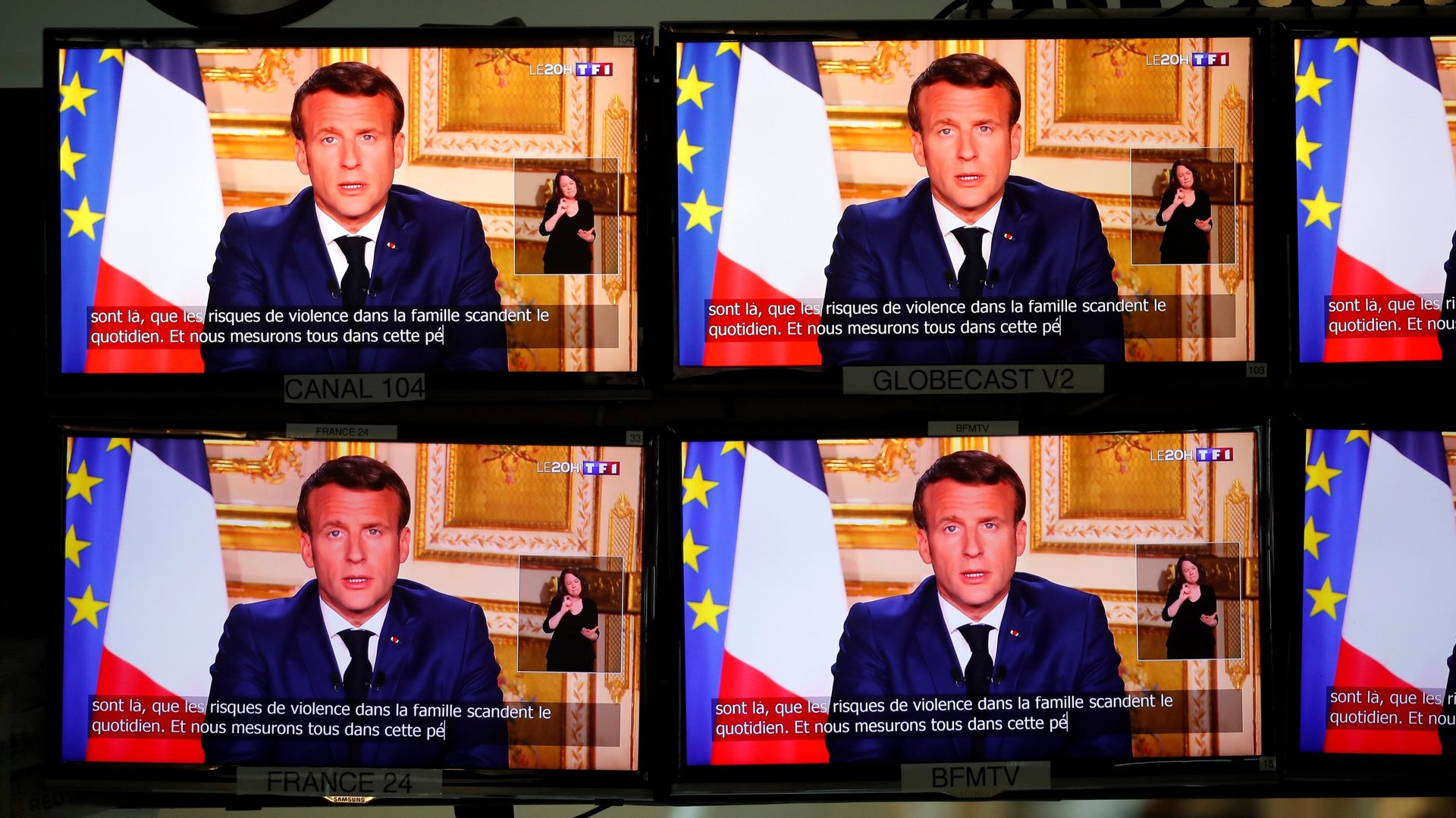The psychology behind France’s decision to announce an end date for lockdown
In a sober address to the nation on Easter Monday, French president Emmanuel Macron did something unexpected: He set an end date for the the coronavirus-induced confinement period in France. From May 11 onward, he said, quarantine will be “gradually” lifted, starting with nurseries, K-12 schools, and some shops.


In a sober address to the nation on Easter Monday, French president Emmanuel Macron did something unexpected: He set an end date for the the coronavirus-induced confinement period in France. From May 11 onward, he said, quarantine will be “gradually” lifted, starting with nurseries, K-12 schools, and some shops.
Macron’s address was his third since March 17, when the government ordered 67 million French people to stay home, allowing them out just once a day to exercise, buy food or medicine, or seek medical care. But this speech was different from its predecessors. Instead of a rallying cry for war against this virus, which has already killed about 15,000 people in France, Macron was apologetic, acknowledging state failures in rolling out testing and supporting healthcare workers, and admitting that he didn’t have all the answers. And, like a mantra, he repeated the date throughout his speech: Monday, May 11.
His decision to set a date for the start of the end of confinement, when so much uncertainty still surrounds this pandemic, was surprising. For one thing, it creates expectations—a standard that the government’s response can be measured against. If it fails to reopen schools and shops by May 11, its credibility could take a hit. That’s why many leaders have chosen to continually extend confinement in 2- to 3-week increments, refusing to commit to an end date that they cannot really guarantee. “When it comes to that date, and they find out they can’t lift the lockdown, or not in the way they first communicated, then you risk creating a backlash and a loss of trust,” said Kris De Meyer, a researcher in neuroscience at King’s College, London.
But psychologists say Macron’s move makes sense, given what we know about how the human brain reacts in uncertain situations. “The combination of uncertainty and danger is a recipe for severe angst,” writes psychologist Arie Kruglanski in The Conversation. “It feeds an intense desire for certainty, better known to psychologists as the need for cognitive closure.” Kruglanski, who coined the term, defines cognitive closure as “individuals’ desire for a firm answer to a question and an aversion toward ambiguity.”
In an uncertain situation, like the global spread of a previously-unknown virus—where there is no cure or vaccine, and we are all stuck at home for the foreseeable future, knowing that our jobs might not be waiting for us when we get out—our brains crave certainty and definitiveness. “We long for clarity and guidance, a ‘light at the end of the tunnel’—a tunnel that at this moment appears without end,” writes Kruglanski.
De Meyer, who studies how people become entrenched in their beliefs, says that in these situations, the delivery really matters: It’s important to give people something concrete to hang onto (like a date), but to set clear expectations about what will happen on, before, and after that date, and to leave room for a change in plans. Everyone tolerates ambiguity differently, and for some, a lack of certainty will push them either toward denial or toward panic. That’s where misinformation and conspiracy theories can spread. “I would recommend to every country that, once they feel a tinge of certainty about when they can start changing some of the measures, to put a date on it, because it does give some kind of closure, but it also gives clarity of communication,” De Meyer said.
“This is the time where steady, reassuring leadership is desperately needed,” Kruglanski echoed. “It is the time, too, when authoritative, confident direction is much preferred over flexible, laissez-faire guidance. We need to be told what to do, plain and simple.”